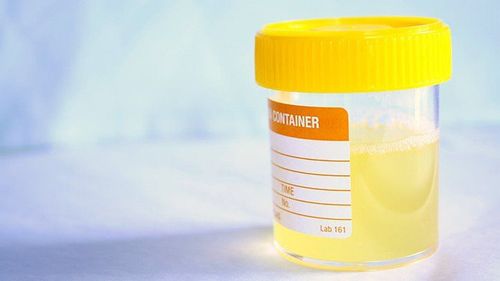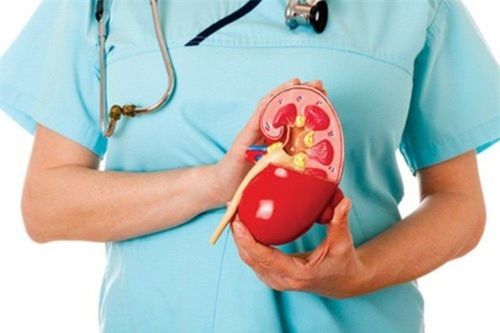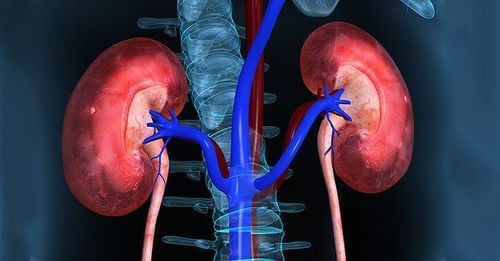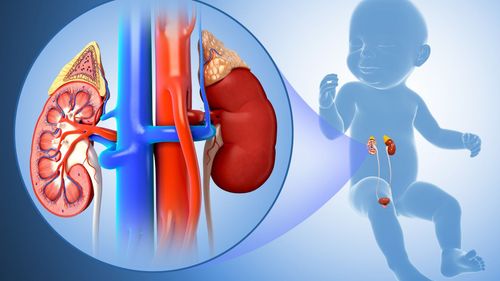This is an automatically translated article.
This article is expertly consulted by a Doctor Urologist - Department of General Surgery & Anesthesia - Vinmec Hai Phong International General Hospital.
Oliguria is a condition in which the 24-hour urine output decreases, the diagnosis of oliguria is based on 24-hour urine measurement. The cause of oliguria can be physiological, or it can also be caused by a dangerous disease.
1. What is oliguria?
The formation of urine in the kidney consists of two processes:
Glomerular filtration: Part of the plasma is filtered through the capillaries into the Bowman's capsule and becomes the glomerular filtrate. The process of reabsorption and secretion in the renal tubules: When the filtrate enters the renal tubule, the volume and composition of the filtrate will be changed. Water and some solutes are returned to the roof by reabsorption. Conversely, some solutes are excreted into the tubular fluid and become urine. The process of making urine helps the body retain water, electrolytes and important substances, and helps the body eliminate harmful products for the body....
The amount of urine excreted is related to 3 factors:
Pre-renal factor: If the glomerulus wants to filter urine normally, the blood pressure in the renal artery must be sufficient, and the blood volume to the kidney must also be sufficient. These two factors increase or decrease will affect the glomerular filtration. Renal factor: Related to the filtration and absorption process in the kidney. Filtration: The blood pressure above the glomerulus must be large enough, creating pressure to push the plasma into the bowman's capsule. Renal absorption: Occurs in the renal tubules, so the function of the renal tubules must be normal, in addition, this activity depends on the hormone aldosterone (secreted by the adrenal gland) and the antidiuretic hormone ADH (from the lobes). secreted by the pituitary gland) governs. Post-renal factors: Related to the obstruction on the way to excrete urine outside the body, from the renal pelvis to the urethra. Causes can be stones, tumors... Any cause affecting the above 3 factors can cause changes in the quantity and composition of urine.
Oliguria is defined as urine output less than 500ml within 24 hours.
2. Causes of oliguria

May be due to physiological or pathological causes.
Physiology
Due to drinking less water Due to sweating a lot Pathology: Based on factors affecting urine output, causes can be divided into 3 groups of causes: oliguria due to pre-renal, renal and posterior causes. kidney.
Causes before the kidneys Dehydration, blood loss: When the body is dehydrated due to causes such as high fever, diarrhea, vomiting, bleeding, gastrointestinal bleeding... making the circulating volume decrease, not enough Renal blood flow leads to oliguria. Humans are children who are very prone to high fever and diarrhea causing oliguria in children. When there is a state of dehydration, it is necessary to supplement with water orally or through intravenous fluids if it is not possible to drink. Shock: Can be seen in infection or trauma, the state of shock reduces blood flow to organs in the body including the kidneys. Heart failure: Blood flow to the kidneys decreases, and renal artery pressure also decreases. Cirrhosis: Due to cirrhosis causing edema, fluid loss into the interstitial space or into the body cavity. Using some drugs: Non-steroidal anti-inflammatory drugs, antibiotics... Causes in the kidney Acute glomerulonephritis : May cause oliguria or even anuria. Manifestations of fever, fatigue, blood in the urine, edema, increased blood pressure, headache, nausea. Chronic glomerulonephritis Acute tubular necrosis: Oliguria is an early sign of the disease, the cause of which may be acute poisoning or shock. Interstitial nephritis: Interstitial inflammation can be caused by taking some antibiotics, anti-inflammatory drugs... or by infections (staphylococci, E.coli, streptococcus) or tuberculosis. Due to renal vascular disease: Bilateral renal artery occlusion, bilateral renal vein occlusion. Often accompanied by back pain, fever... Post-renal causes Urethral or bladder neck obstruction: Prostate enlargement, bladder cancer, prostate cancer, neurogenic bladder disease, urolithiasis Urethral... Obstruction of the ureter: It is possible to block one or both sides due to stones, malignancies, peritoneal fibrosis...
3. How to treat oliguria?
Oliguria is a symptom of a certain disease, so to treat oliguria, it is necessary to find the cause, thereby treating the cause of the disease.
For cases of physiological oliguria, actively increase water intake or drink to make up for lost water. In case of pathology, the cause is treated, such as: Decrease in circulating volume: Need to compensate for the lost circulating volume. Bacterial infections need to be treated with antibiotics. Dialysis when toxins accumulate when the filtering function of the kidneys is reduced. Surgery or medication to treat the cause of urinary obstruction.
4. Is oliguria dangerous?

Is a dangerous condition that needs to be handled promptly, otherwise it will lead to diseases such as:
Hypertension Heart failure Anemia Acute kidney failure Accumulation of toxic metabolites to the body Oliguria can be caused by For patients with certain diseases, pay attention to monitor the amount of urine within 24 hours to help detect the risk of disease early. When detecting oliguria, it is necessary to go to a medical facility to determine the cause to avoid too long causing dangerous complications.
Vinmec International General Hospital is the address for examination, treatment and prevention of diseases, including Urology. When performing the examination process at Vinmec, customers will be welcomed and used modern facilities and equipment along with perfect medical services under the guidance and advice of experts. Good doctors, well-trained both at home and abroad.
Please dial HOTLINE for more information or register for an appointment HERE. Download MyVinmec app to make appointments faster and to manage your bookings easily.













